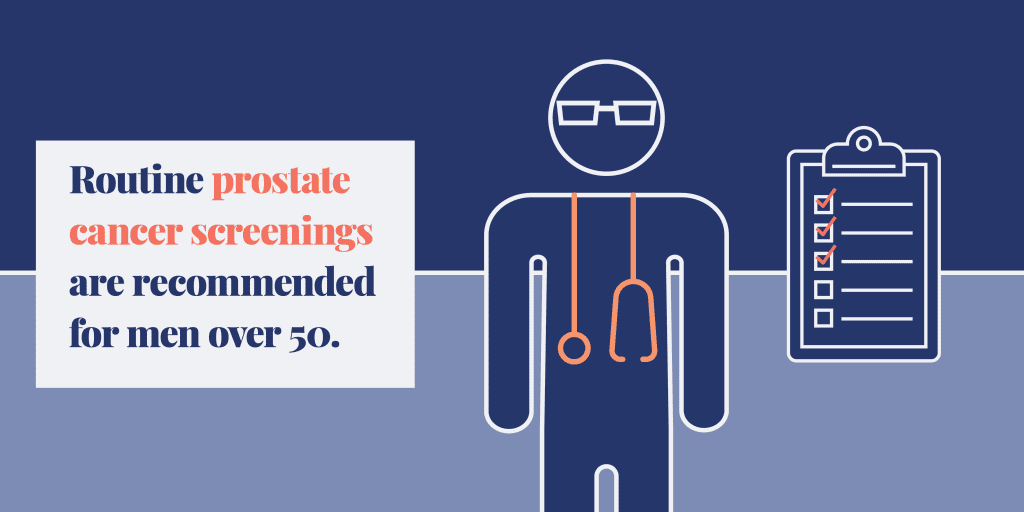September is Prostate Cancer Awareness Month and while prostate health is important all year long, this month, we are encouraging you to start a conversation about prostate cancer risks and symptom concerns with your loved ones and their doctors.
Prostate cancer is the second most common cancer affecting American men today. Nearly one man in every nine is diagnosed with prostate cancer according to the American Cancer Society. Often, the early stages of prostate cancer do not yield noticeable symptoms or immediate warning signs. This is why routine screenings are recommended for men over the age of 50, especially if they have prostate cancer history in their immediate family or other risk factors.
Prostate Cancer Warning Signs
Prostate cancer symptoms are often associated with urinating problems because of the proximity of the prostate gland to the urethra and bladder. With prostate cancer, the prostate gland can expand in size causing a blockage affecting the flow of urine. This complication can develop into the following symptoms:
- Difficulty urinating or decreased urine flow
- Discomfort while urinating, including burning or pain
- Frequent urges to urinate or complete loss of bladder control
- Blood in urine
If you are experiencing any of these symptoms, it is vital to visit your doctor. While these are prostate cancer warning signs, they are also symptoms of other non-cancerous diseases like UTIs or an enlarged prostate. While these are more common conditions, they can quickly lead to complications if left untreated. Talk to your doctor for accurate diagnosis and treatment options.

Other prostate cancer symptoms can be detected from the following ejaculation issues:
- Painful ejaculation
- Erectile dysfunction
- Blood in semen
A decrease in sexual performance is not often associated with prostate cancer. However, the prostate is responsible for making seminal fluid and pushing it out when a man ejaculates. If you notice pain or difficulty ejaculating, it’s time to discuss these symptoms with your doctor.
Prostate cancer may also spread to surrounding areas in the body like bones or organs, causing discomfort. When this type of cancer spreads, it’s referred to as metastatic prostate cancer. Aggressive prostate cancer symptoms to watch for are:
- Pain in the hips, spine, chest or bones
- Swelling or numbness in legs, feet or pelvic area
Early Detection Saves Lives
Instead of simply raising awareness this month, we encourage you to take action. Early detection of prostate cancer can lead to more effective treatment. Like with most cancers, prostate cancer is more easily treated when caught in its early stages. Your doctor will provide detailed screening options and personalized recommendations based on your medical history and potential predispositions.
Whether you are a man experiencing some of the symptoms above or you are thinking about skipping out on your next annual exam - please reconsider and discuss these warning signs with your doctor. If you have a husband, a father, a brother, an uncle or a friend, encourage them to take a proper prostate cancer screening after discussing it with their primary physician. It’s important to remember that every man is different and can experience all of the symptoms above or none at all. Always seek expert advice and care.







